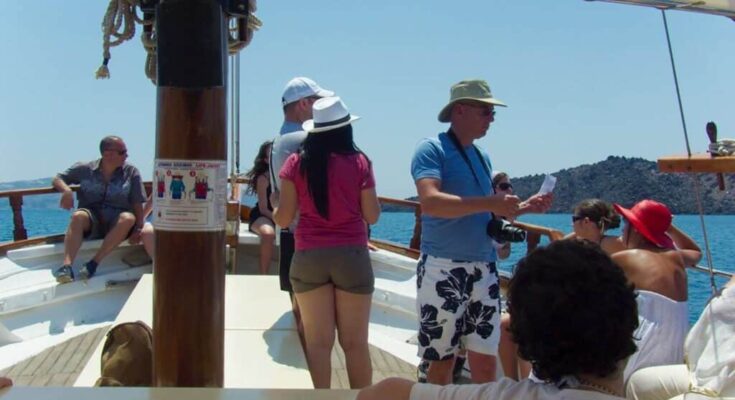
An ominous analysis on Greece’s tourism prospects appears in Reuters, titled “Is it time for Greece to change its tourism model?”
Anger over “hyper-tourism”
Greece’s turquoise waters and reliable sunshine have long made it a popular vacation destination. Last year, nearly 33 million visitors generated €28.5 billion in revenue. This year, total visitor numbers are expected to rise as global tourism exceeds pre-pandemic levels. However, anger over “hyper-tourism” has sparked protests in the Cyclades in recent years.
“People in Greece worry that the Cyclades are changing too fast. In a few years, everything special about them could be lost,” says Dimitris Vagianos, an economist at the London School of Economics.
Moreover, Greece isn’t alone in facing these challenges. Many residents in other popular European destinations argue that tourists harm the environment and local economies. Short-term rentals such as Airbnb drive up housing costs and push people out of their towns and villages.
Balancing tourism and climate change
Greece, however, is among the countries most affected by global warming. Rising sea levels, heat waves, erratic rainfall, and frequent fires are altering its landscape. Tourism strains scarce water resources and threatens fragile coastal environments. Consequently, there are growing calls to limit building, control tourist flows, and invest in water management and infrastructure.
The Greek government faces the challenge of balancing these threats with safeguarding crucial tourism profits. Tourism generates between €62.8 billion and €75.6 billion annually, about a third of the country’s GDP. Yet climate change raises urgent questions for the industry. A prolonged heatwave in June, followed by the hottest July on record, forced the closure of tourist attractions. This also led to a “wave of heat-related deaths,” Reuters notes, referencing isolated incidents of tourist fatalities.
Furthermore, wildfires—intensified by warmer, drier weather linked to climate change—also threaten tourism. A massive fire earlier this month came within kilometers of Athens. Last year, more than 8,000 forest fires raged across the country, forcing thousands of tourists to evacuate islands, including Rhodes.
The Greek Ombudsman, which investigates public complaints, highlighted these concerns in a June report. He urged the country to reduce construction and protect water resources and coastal areas to maintain sustainable tourism. He also warned of growing environmental risks, particularly the added strain on water supplies for drinking, swimming pools, and water parks.
Hotter summers and sustainability challenges
A pilot study by Greek researchers and UNESCO found that smaller Aegean islands already need twice the water they naturally produce to meet tourist demand. This demand is expected to double by 2030. “The more these islands develop, the less attractive they will be to visitors,” says Vagianos.
Additionally, Greece faces climate change effects beyond rising temperatures and extreme weather. Coastal erosion and shrinking underwater meadows, which contribute to the Mediterranean Sea’s turquoise color, also pose threats to tourism. According to the Institute Association of Greek Tourism Enterprises (INSETE), these issues, alongside floods, water shortages, high temperatures, and drought, threaten the industry.
INSETE recommends promoting biodiversity-rich tourism to help fund alternatives to traditional beach vacations. These alternatives include agro-tourism, gastro-tourism, wellness and health, and adventure tourism.



